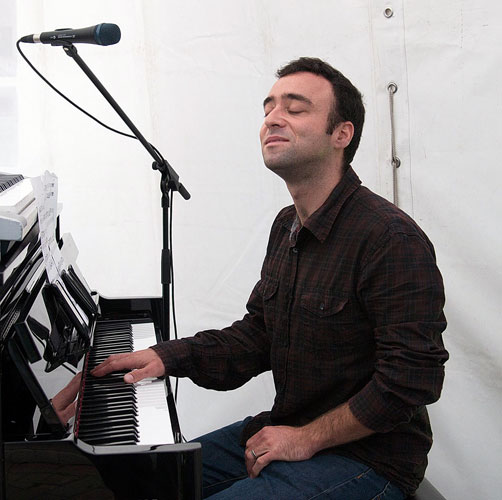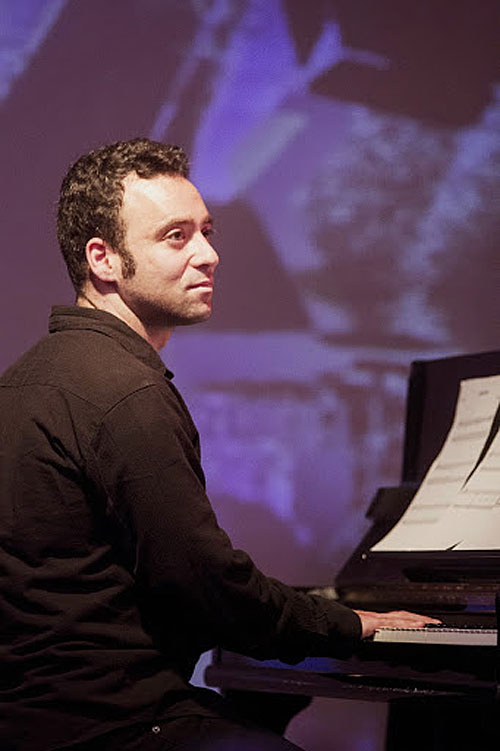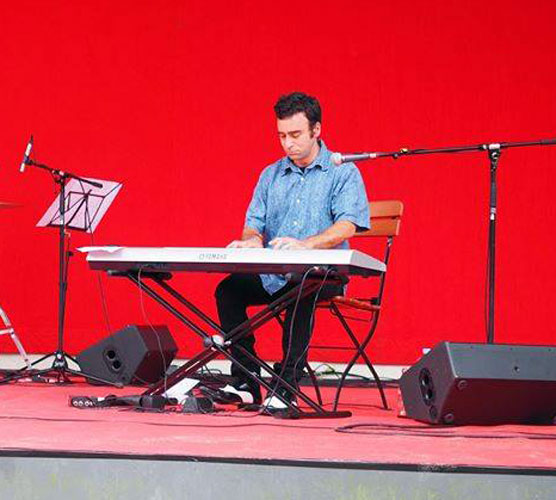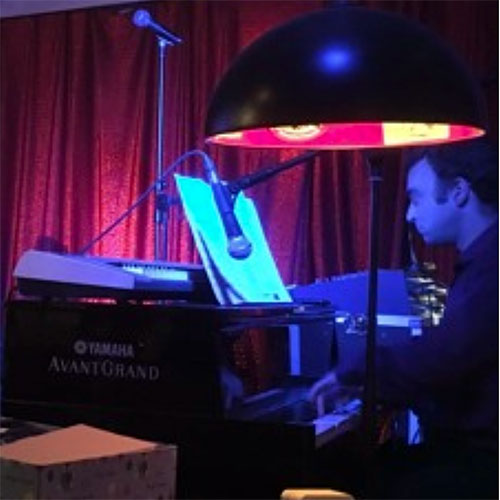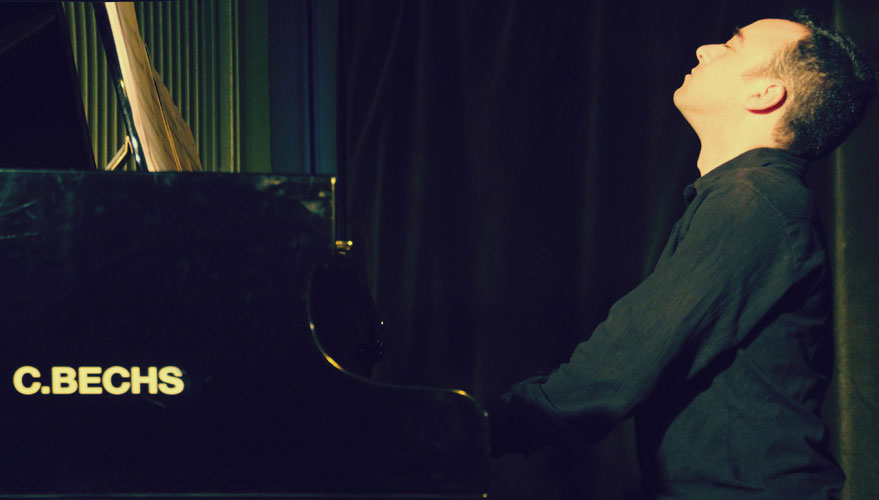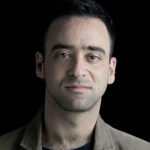Music, // June 16, 2019
Ido Spak — MUSICIAN
Interview with musician Ido Spak —
Many choose to travel simply for personal pleasure but Ido Spak has ensured his journeys are available for everyone to experience musically. Though originally from Israel, Spak has travelled the world, experiencing music, sound and rhythms of all kinds, bringing them together in a way which takes the listener through lands which are both familiar and alien. “Wrong Direction,” Spak’s latest album, takes inspiration from the musicians from Iran, Syria and Palestine to conjure up images of deserts beneath vast skies, bazaars and bustling communities, constantly shifting in tone and texture and never less than utterly enthralling.
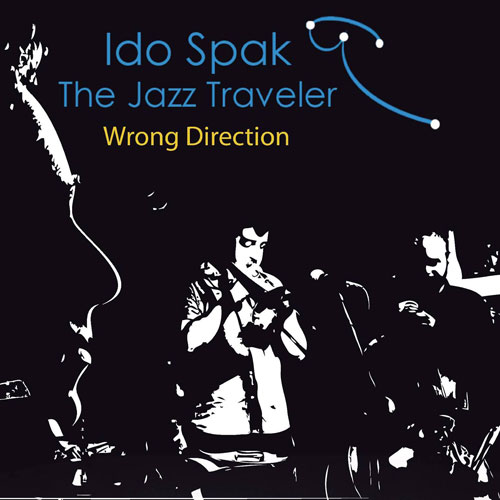
Ido Spak
“Wrong Direction”
1. Who are you and what do you do?
I am Ido Spak, a composer, and I strive to build a bridge between Classical, Jazz, and middle eastern genres. The piano is my main instrument, but I also write for orchestras as well as wind ensembles and I even write music for Hip Hop projects.
2. Why music?
Music chose me. It put a spell on me and drafted me into a magical world of sounds, harmonies and rhythms and not only could I not escape it, I have fallen in love with it. I was actually supposed to study Law, like most of my family and live a normal life and only when I was 21 years old, after two years without playing, I have realized, I could never live without music and I would have to give 100% even if it means a life of poverty and loneliness.
3. What is your earliest memory of wanting to be involved in music?
When I was 10 years old, I was in love with a girl in my class. Everybody had considered her to be ugly, but I was possessed, and I had a fantasy of playing guitar and becoming a rock star, so that she would fall in love with me! One year later, I borrowed a guitar from my neighbour, started following guitar lessons and writing a lot of songs. They sounded really bad, but I just continued and they started sounding better.
4. What are your favourite subject(s) and style(s)?
As a classically trained musician, who has studied conducting and composition, I will always have a place in my heart for David Bowie and Rush. I actually came to classical music through Metal, being open to Baroque and then, further to Beethoven and Romanticism. My greatest inspiration on the piano was, Franz Liszt. It was only in the Netherlands, that I started appreciating contemporary music through my professor, André Douw. In different times in my life I focus on various styles, for instance, Alexander Scriabin during this year and I have spent the last week listening to Avishai Cohen again.
5. How do you work and approach a new piece that you are working on?
It depends. When I write Jazz music, I only hear it in my head and write it down, and then send the musicians their parts. Whereas other musicians focus on Jazz standards as a source of inspiration, I choose classical music or Arab music, in order to be different and re-harmonize the phrases, thinking symmetrically, or like a graph. When I wrote music for Opera last year, I tried to listen a lot to Frank Zappa as a preparation and use his approach for the recitatives. When I had difficulties, I went for a 2-3 hours jogging and the ideas just came fluently in my head. I have spent the last 6 months writing sonatas to piano and sax, combining textures that remind me of Rachmaninov’s piano concertos, which I had mastered a year previously.
6. What are your favourite musician(s), singer(s)?
It’s a very long list! As a teenager, I was obsessed with Beethoven’s symphonies and piano works. in 2015, I learned all of his piano sonates. At the age of 19, I listened a lot to Wagner and Brahms. It was Bud Powell who finally brought me into Jazz, although I always knew this day would come. During my years in Amsterdam, I was listening a lot to Bud Powell and Horace Silver, but it was Avishai Cohen, and Omer Avital, who have helped me make the transition to modern Jazz and explore time signatures. After many years of mastering this field of modern Jazz, I started again re-discovering Franz Liszt through the same pieces that I had mastered during my study in the UK and Alexander Scriabin, whom I had become acquainted with, when I was Studying in Amsterdam.
7. What are the best responses you have had to your work?
It varies. I live in a very conservative town where most people are still into old Jazz from the 1920’s and Bebop is too advanced. The People in Berlin, Hamburg and other big cities are more enthusiastic with this Jazz Fusion. I was overwhelmed to find out that most of my fans, according to my Facebook site, are from Latin America and the Arab world. My Syrian neighbour tells me a lot that he enjoys hearing me practising, but when he told me that I could be a real star in his home land, I thought he was kidding! Music is really much stronger than brothers, nationality and politics.
8. What do you like about your work?
I like the freedom, to pursue my own challenges and develop the way I choose.
I could never really learn much while sitting in a class, because I have too much self discipline and determination to do things my way. That’s why I have learned to speak German and Dutch without a course, alone at home and practised it on the street. When I don’t practise at least 3 hours a day, I feel bad. The thing that has always brought me motivation, was the professors who said “you can’t do it” so it made me work harder, in order to laugh at them and prove to myself that they were wrong.
9. What advice would you give to other musicians?
First, many people will tell you what you can’t do, but don’t let them make the decision for you. Only you decide what you can or can’t and choose your own boundaries. We all hear at school that you have to start playing when you are 6 years old, but after 20,000 of practising, systematically with full focus, everything is possible.
Second, Forget about the money, fame or any reword that you might dream of. Just work hard and practise systematically, with short term goals for each rehearsal or gig, and long term goals for each year, knowing that when luck comes, you will be well prepared for it.
Third, don’t compromise on who you are and don’t choose music that you don’t like, just for the sake of making more money. It will only destroy your chances to succeed.
10. Where do you see yourself in 5-10 years?
I hope I will be still touring in the UK once a year, and I wish to tour also in the USA once a year and hopefully, I could also play in India, Pakistan and Arab countries as well as Iran, should the new global developments allow it to happen. I also wish to find new challenges to explore. I find it a pity that most people measure success with money and sales, rather than development and self fulfilment.
LINKS—
Facebook: https://www.facebook.com/Ido-Spak-The-Jazz-Traveler-120272181487099/
Instagram: https://www.instagram.com/idospak/
Website: www.idospak.com
Soundcloud: https://soundcloud.com/idospakjazztraveler
Youtube: https://www.youtube.com/channel/UC-mXYr280yCzlMiJZWyxulQ?view_as=subscriber
Lisa Freeman is an Arts Illustrated’s Correspondent, representing the United Kingdom.
Lisa is also a Public Relations Director for – Quite Great PR & Marketing in Cambridge.



